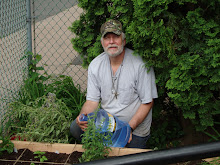
Lately I have been very puzzled and troubled by how I see myself and others acting within my faith community. To me we are far too inwardly focused, and, being so self-absorbed, miss the opportunity to focus our energies outward. One recent thought I had while sitting in church on Sunday was "The church is out there, not in here."
In the Old Testament section of today's lectionary Abram enters into a covenant with God, not knowing or understanding what the implications will be, though God promises protection, reward, and an heir - very important to Abram! God brought Abram outside and said "Look toward heaven and count the stars, if you are able to count them."
Abram couldn't count them...and neither can we. But we can get a sense of the magnitude of living a life of faith, outwardly focused, faithfully believing that we are and will be cared for.
The contemporary collect for the Third Sunday after the Epiphany reads:
"Give us grace, O Lord, to answer readily the call of our Savior Jesus Christ and proclaim to all people the Good News of his salvation, that we and the whole world may perceive the glory of his marvelous works; who lives and reigns with you and the Holy Spirit, one God, for ever and ever."
Yes we are part of a whole world and should not let our personal fears overtake us, but become part of the larger community under God. Whatever that call is, I believe it is to look outward. And my prayer for myself today is that I will listen closely.
Daily Office Year Two
Gen. 15:1-11, 17-22; Ps. 45; Heb. 9:1-14; John 5:1-18


